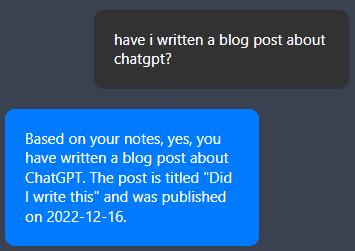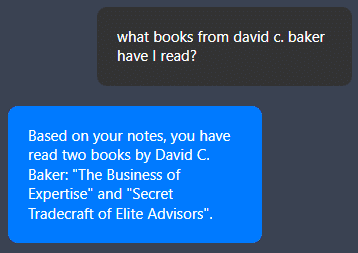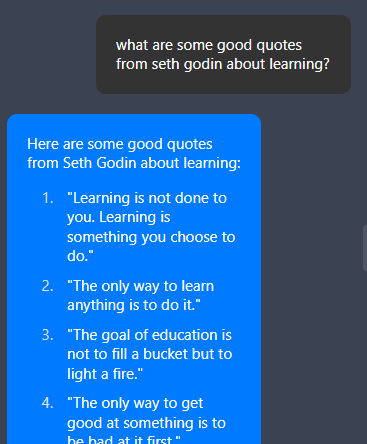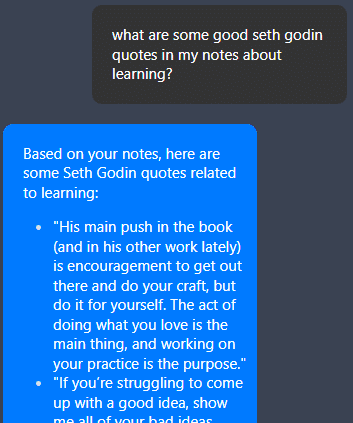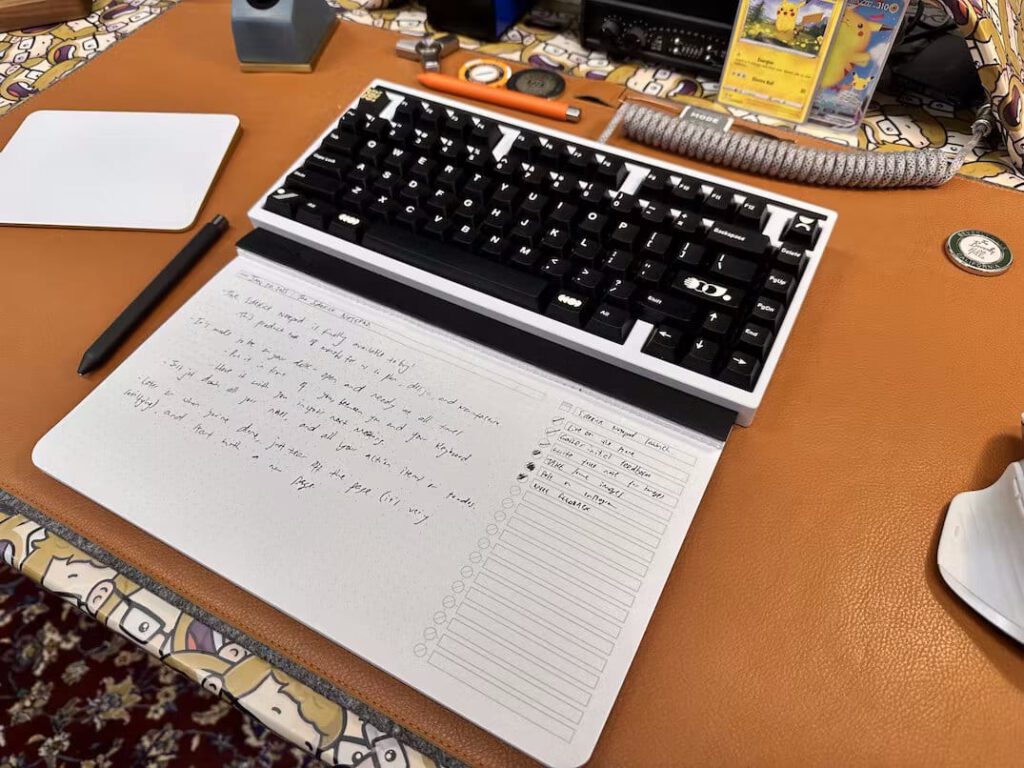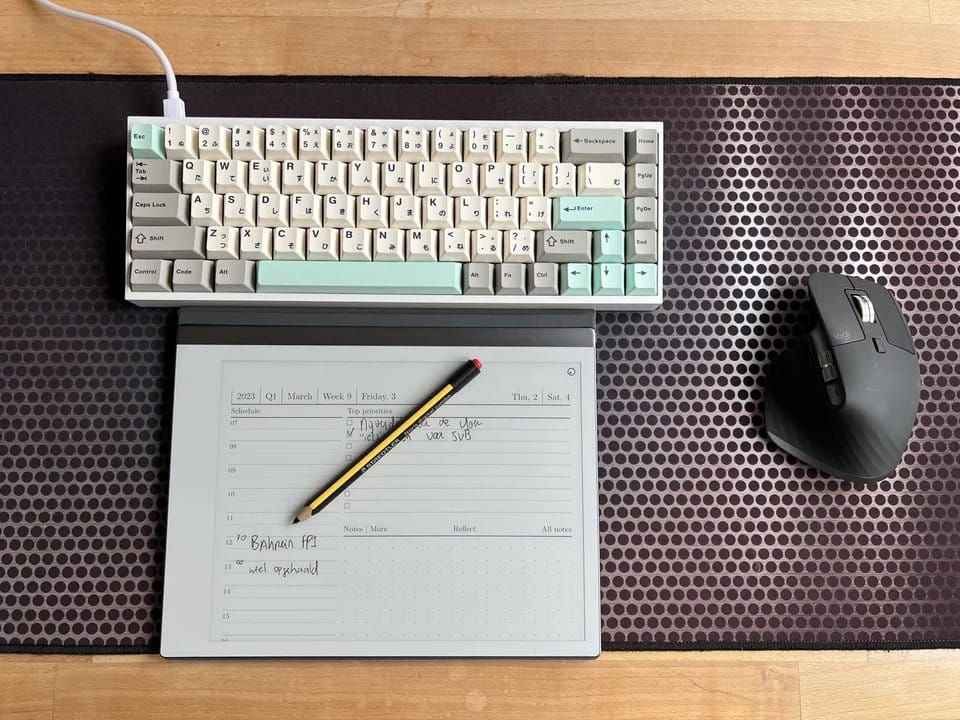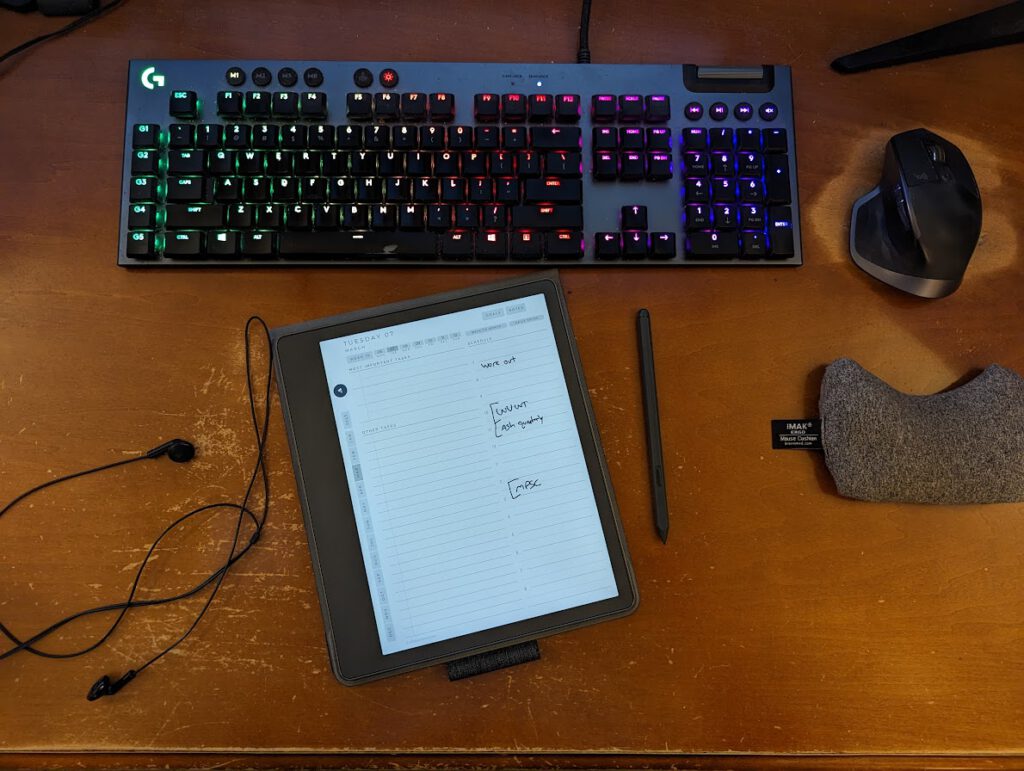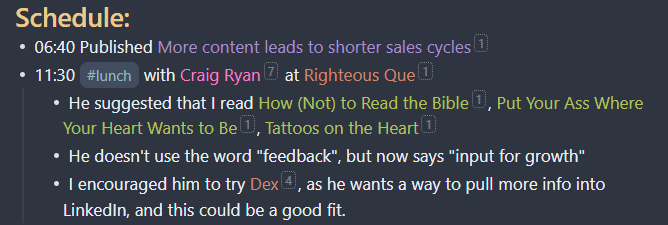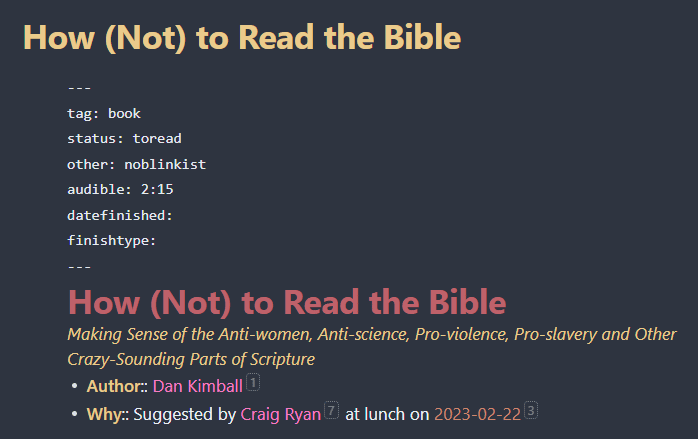There are a lot of tools out there to help automate your note-taking. For example, a recent episode of Tech Talk Y’all shared the Omnivore app, which can automatically move highlights from your Kindle into Obsidian. It’s really slick, but I think it takes things the wrong direction for me. My notes are intended to help me learn, so I need to visit them more often, not less.
Here are two examples.
First, you may have noticed my recent “Sunday Summary” posts. While I hope you gain some value from them, I make it clear in the posts that those summaries are largely for me. They force to revisit my posts again and hopefully make things stick a little longer in my brain.
I also have tools like the Readwise “Daily Review” that forces me to revisit past highlights. I want to see old notes come up again, and do the manual work to connect them to one another. Heck, this goes back to a post from a few years ago about why I’m blogging every day.
Why do you have notes?
Granted, your need for notes might be different. It’s very possible that you literally want to just have a database of thoughts that you can reference later. In that case, tools like Omnivore are probably amazing for you, because it can automate dumping more stuff in your notes for future use.
It all comes down to why you have a place for notes at all. Once you understand that, you can shape your activities to make sure you’re doing things to support your overall goals.
For me, I want my notes to be a place that is constantly evolving to grow more benefits, so visiting those notes more often is the best way to do that.
